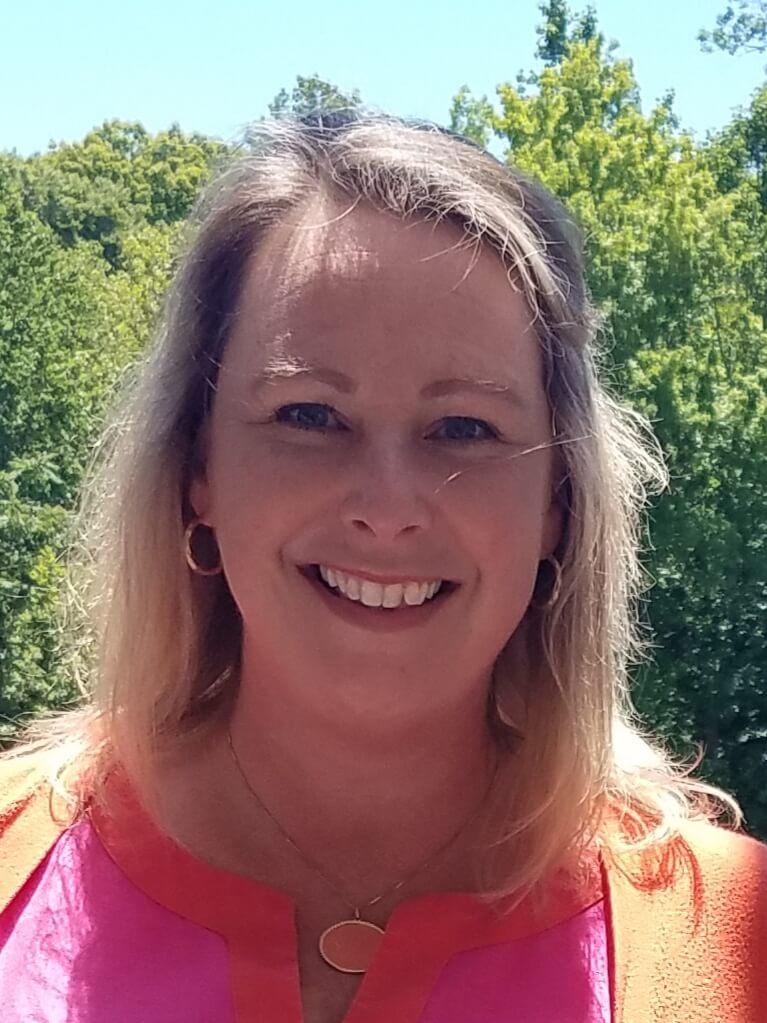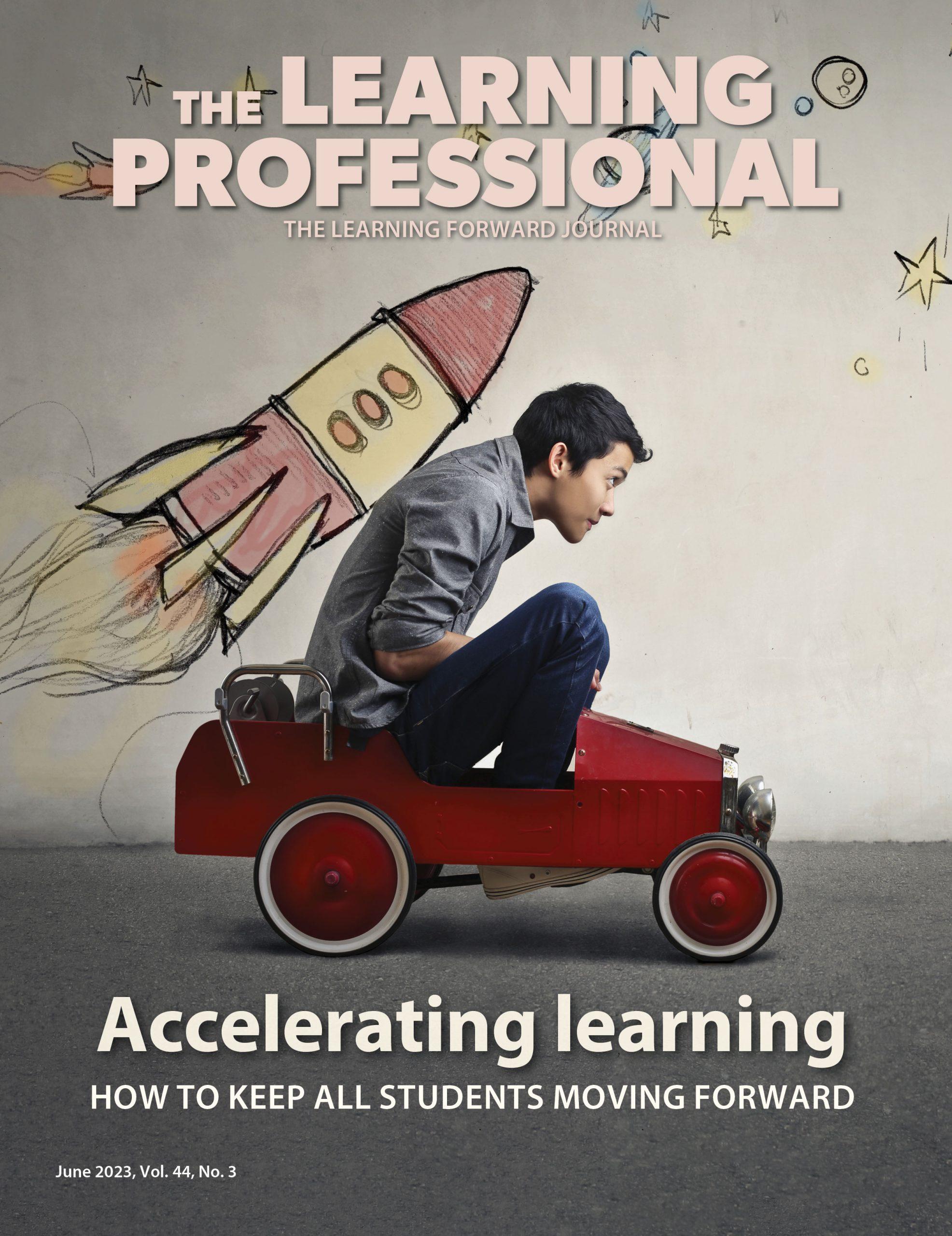FOCUS
For small districts, a regional network holds the key to new teacher support
By Sarah Hylton
Categories: Collaboration, Implementation, Learning communities, Mentoring & induction, Resources, System leadershipAugust 2022
Many school districts struggle to retain early career teachers, but the challenge is particularly pronounced in small and rural districts (Frahm & Cianca, 2021). The School-University Resource Network, a university center at William & Mary School of Education in Virginia, discovered this firsthand through a community of practice we facilitate with assistant superintendents who work in districts with 10,000 or fewer students.
During regular meetings to share best practices, leverage support and resources, and wrestle with the perplexing problems of education in context, teacher retention quickly rose to the surface as a significant challenge in the participants’ districts. Assistant superintendents reported that larger, more resourced districts often wooed away early career teachers with incentives such as signing bonuses, higher salaries, and the promise of more support, leaving these smaller districts in a seemingly endless cycle of hiring new and often inexperienced teachers. District leaders in the School-University Resource Network wondered what our university center might do to help stop that drain.
Those organic conversations gave rise to the Novice Teacher Academy, a program that supports novice teachers (those with up to three years of teaching experience) from small districts across the state (systems that serve fewer than 10,000 students). The Novice Teacher Academy is a yearlong experience designed to support early career teachers through in-person workshops and mentoring, online coaching, and supplemental teaching tools and strategies.
Since the academy’s inception in 2019, we have supported and worked with 111 novice teachers and 11 master teachers from 13 districts across four superintendent regions. Early data indicate that academy teachers have remained in their districts, and anecdotal reporting from both teachers and district leaders is positive. Participating teachers consistently report that the Novice Teacher Academy has empowered them to adopt a positive, optimistic view of teaching and learning and that the academy promotes the retention of novice teachers.
How the academy began
To develop the Novice Teacher Academy, we worked with a steering committee comprised of School-University Resource Network leaders, William & Mary faculty, and assistant superintendents from six Virginia school districts. Working from a positive, appreciative inquiry model (Cooperrider et al., 2008), the group envisioned a program that would complement existing local mentoring programs.
Mindful of the principles of andragogy (Knowles, 1984) and of teaching as developmental (Pitton, 2006), we designed a program that gives novice teachers opportunities to explore their pressing concerns and challenges. We founded the Novice Teacher Academy with the following goals:
- To establish supportive relationships among novice teachers and master teachers, both within and across districts, that foster growth and learning;
- To create a safe space for novice teachers to learn and share;
- To empower novice teachers to adopt a positive, optimistic view of teaching and learning;
- To address just-in-time needs of novice teachers;
- To model effective teaching;
- To promote the retention of novice teachers; and
- To provide leadership opportunities for master teachers.
District leaders select novice teachers who indicate their willingness to participate and learn in a regional community of practice that meets five times over the course of a school year. These participants are grouped according to grade level or content area, and each group is facilitated by master teachers in the same or similar grade levels or content areas. This cross-district grouping has been especially helpful for teachers from small school districts who do not have colleagues in their building who teach a similar course.
From the beginning, we knew that master teachers would be the backbone of the program. Master teachers are those recognized as leaders with strong content knowledge and pedagogical practice as well as potential skill in mentoring other teachers. Not only do they provide quality mentoring and coaching for our novice teachers, but they also provide meaningful feedback and suggestions to us for future sessions.
We rely on district leaders to nominate master teachers across the K-12 grade level and content continuum, including both general and special education teachers. To guide their work, we provide master teachers with written facilitator guides for each session as well as share details via email and phone. We also use a huddle approach, meeting 15 minutes before and after each academy session to share information and coaching resources.
Academy sessions
The academy consists of five full-day sessions over the course of the school year, with each session following a similar flow and structure. The first three sessions occur monthly throughout the fall to provide support as early in the school year as possible. The fourth and fifth sessions occur during the second semester, with the fifth closer to the end of the school year.
These sessions are designed to be conducted in person, but we pivoted to an online format during spring 2020 and the 2020-21 school year because of the COVID-19 pandemic. In fall 2021, we returned to the in-person structure but retained online, small-group coaching between sessions.
Initially, we anticipated that the academy content would focus on issues around curriculum, instruction, and assessment, but we quickly found that the relational aspects of teaching needed to be the foundation for each session. As a result, experts from both the field and the university present on topics such as building relationships with students, classroom management, classroom culture, family engagement, co-teaching, conflict resolution, and assuming positive intent.
To help teachers think critically about these topics and how they can be applied in their own classrooms, we implement varied learning activities such as sort cards, brainstorm carousels, jigsaws, gallery walks, case studies, and scenarios, all of which support the academy’s focus on deeper learning for transfer.
We also use several protocols for collaborative problem-solving throughout the sessions. Participants value these opportunities to connect and think with cross-district peers who face similar challenges, particularly because new teachers from small and rural districts often feel isolated and may not have such opportunities routinely.
Framed by learning agreements and intentions, sessions begin with participants considering what they hope to get out of their day at the academy as well as what they hope to put into it. “We’re asked to think about how our day will go and how we can approach it positively,” one participant said.
Empowering novice teachers to adopt an optimistic view of teaching and education means ensuring they have relational supports, so sessions intentionally attend to participants’ social and emotional needs. Activities such as storytelling centers, stokes (e.g. icebreakers, brain breaks, energizers), and frequent table talk encourage relationships among colleagues.
Participants’ feedback highlights the value they place on establishing these trusting relationships with their peers. As one participant noted, the academy is a place “to find validation and camaraderie. It’s important to know that, as a new teacher, you are not alone in your difficulties, challenges, and successes.”
Committed to helping develop reflective practitioners, we build multiple opportunities for participants to pause and consider the various learning activities in which they engage throughout the day. “Unpack the process” is one of our standing mantras, as we urge teachers to consider what each activity entails and how they can transfer it to their own context.
Among the materials greeting participants at each session is an idea catcher, a simple organizer printed on card stock, which we encourage our novice teachers to use to capture learning activities and instructional strategies that we model throughout the day.
One of the hallmarks of the academy’s commitment to reflective practice (and one of the highlights of our closing session) is an activity called Highs, Lows, and Lessons Learned (Rodgers, 2022). Each teacher writes their year’s high (on a green note card), low (on a blue note card), and lesson learned (on a yellow note card).
They share these with their table groups and then clip them to three parallel clotheslines, with highs on the top line, lessons learned on the middle line, and lows on the bottom line. After having time to peruse each other’s reflections, teachers return to their table groups to discuss what takeaways they’ve gained and how they will act on those in their praxis moving forward.
Following each session, we share all presentations, slides, and resources as well as any responses, brainstorms, or teaching ideas participants generated during the session. We also send links to additional resources that we think may be beneficial for continued professional learning and growth.
This serves multiple purposes. First, our work is designed to complement the in-school mentor support required in Virginia school districts. Beyond that, it is designed to stretch and expand the novice teacher’s skills, knowledge, and abilities, which is particularly helpful if a district is unable to provide more than minimal support.
What we’re learning
After the final session, participants complete an online survey, giving them a final opportunity to share their assessment of the program with us along with feedback and suggestions. To date, 90% of respondents have indicated their overall rating of the program was good or excellent. Based on their responses and our own impressions and learning, we have identified the following themes and lessons.
Novice teachers need safe spaces to explore and even fail. Teachers in the academy appreciate the opportunity to work with their peers in a space that fosters trust and allows them to be vulnerable. They particularly value being able to share with colleagues outside of their own districts, noting that this cross-district community of practice is one of the keys to their being able to share their challenges, fears, and frustrations without fear of judgment or recrimination.
Novice teachers have a lot on their minds. In addition to routine feedback from master teachers about how novice teachers are feeling, we also collect data through activities such as I Liked; I Learned; I Wish; I Wonder, teacher wish lists, and exit tickets.
One of the most powerful exercises each year is an activity we refer to as “What keeps a novice teacher up at night?” Participants have quiet time to generate as many responses to this question as they’d like, committing each one to a sticky note. (See sample responses in the sidebar above.)
They take turns sharing these with their table groups and then spend time sorting them into categories, which they label. The activity concludes with a gallery walk and table talk to synthesize what they’re noticing across the full cohort. By viewing one another’s concerns, they discover that they are not alone in their struggles and feel more empowered to tackle them.
Broadly speaking, our novice teachers stress concerns about time, student behaviors and progress, work-life balance, and the expectations of others, and they consistently ask, “Am I enough?” We have discovered that their forthright, transparent responses are a mark of both their need to share and their need for a safe space in which to do so.
By articulating these concerns, participants are engaging in reflective practice and thus taking the first steps in resolving — or at least working toward resolving — their concerns. The qualitative data generated during this activity has been helpful in guiding our decisions about future content and learning activities for future cohorts.
Novice teachers are hungry for meaningful engagement. Participants report how valuable it was to learn and think in the company of other novice teachers and have the support of veteran teachers and experts. Hearing varied perspectives generates options and ideas for novice teachers to consider, something that proves especially beneficial as novice teachers work collaboratively to problem-solve the specific challenges they face in their classrooms.
We all keep learning. Our master teachers routinely share how much the academy has contributed to their own continued professional growth, both through their work as mentors and as participants in the academy itself. As one of our master teachers noted, “Even as a master teacher, I find the presentations engaging, relevant, and incredibly valuable to me as I reflect on my best practices as a teacher.”
Furthermore, our district leaders have indicated their learning, from both the model and the collaboration. We routinely share experiences and feedback from the academy with district leaders so that they have clarity about what the newest teachers in their districts are experiencing and learning.
These leaders have particularly noted the value they place on the opportunity for novice teachers to work with colleagues from across multiple districts as well as their appreciation for being able to pool resources with other small districts to make the academy possible.
Looking forward
Meaningful coaching and mentoring of novice teachers contribute to their persistence in the profession (Portner, 2003; Radford, 2017). Our goal was to create a regional community of practice that would enhance teacher retention in small or rural school districts. Three years into this tailored, job-embedded, and ongoing professional learning experience, the Novice Teacher Academy is realizing retention of novice teachers, with reporting districts indicating a 94% retention rate for academy teachers.
The academy also routinely receives positive feedback from participants, including comments that indicate teachers might like to return for a second year, an option we are currently exploring.
Because our small partner districts often turn to hiring teachers from alternate paths to licensure, recruiting second-career teachers, and developing staff who have not taught before, we are also exploring other iterations of the academy geared toward supporting new teachers from nontraditional pathways.
As more teachers leave the field of education and districts increasingly look to such alternative hiring practices (Woods, 2016; Grossman & Loeb, 2012), induction and mentoring programs that support novice teachers will become even more imperative. Our experiences with the Novice Teacher Academy create a foundation on which we can build to meet those emerging needs.
Our work with novice and master teachers over the past three years suggests that collaborative efforts between districts and university centers is one means of creating a well-supported, more stable teacher workforce. The unique regional, multidistrict partnership found in the School-University Resource Network’s Novice Teacher Academy provides a model for other districts and elevates the benefit of collaboration and sharing resources to tackle the persistent problem of new teacher retention.
What keeps a novice teacher up at night?
Each year, we ask novice teachers at the academy: What is keeping you up at night? Here are some of their responses:
- I worry about my students’ lives after they leave school.
- I would like to occasionally leave my work at school.
- Am I doing the right thing?
- What if I’m not good enough?
- What if I make a mistake?
- Am I reaching every student?
- How long will my grandma and grandpa let me live here?
- I worry about everything I have yet to do that I know should already have been done.
- I want to be a good mentor for my students and worry about saying the right things to help.
- There just aren’t enough hours in the day.
- I worry about sounding like I don’t know what I’m talking about.
- I feel unprepared and am scared to leave school feeling that way.
- When do I plan ahead?
- Kids talking. All. The. Time.
- Knowing what to say when I have to call a parent.
- I think I’m hitting a wall.
- Are they learning?
- I’m doing things not 100% in order to complete 100%.
- I worry I’m not doing enough for my students.
- I worry about letting a kid go under the radar.
References
Cooperrider, D.L., Whitney, D., & Stavros, J.M. (2008). Appreciative inquiry handbook for leaders of change (2nd ed.). Berrett-Koehler.
Frahm, M. & Cianca, M. (2021). Will they stay or will they go? Leadership behaviors that increase teacher retention in rural schools. The Rural Educator, 42(3), 1-13. doi.org=10.35608/ruraled.v42i3.1151
Grossman, P. & Loeb, S. (2010). Learning from alternate routes. Education Leadership. 67(8), 22-27.
Knowles, M.S. (1984). Andragogy in action. Jossey-Bass.
Pitton, D.E. (2006). Mentoring novice teachers: Fostering a dialogue process. Corwin.
Portner, H. (2003). Mentoring new teachers. Corwin.
Radford, C.P. (2017). The first years matter: Becoming an effective teacher. Corwin.
Rodgers, L.A. (2022). Team reflections activity: Highs, lows & lessons learned in the workforce. Better Teams. better-teams.com/team-reflections-activity/
Woods, J.R. (2016). Mitigating teacher shortages: Alternative teacher certification. www.ecs.org/mitigating-teacher-shortages-alternative-teacher-certification/

Sarah P. Hylton (sphylton@wm.edu) is assistant director for professional learning and Amy C. Colley at School-University Resource Network at William & Mary School of Education in Williamsburg, Virginia.
Categories: Collaboration, Implementation, Learning communities, Mentoring & induction, Resources, System leadership
Recent Issues
TAKING THE NEXT STEP
December 2023
Professional learning can open up new roles and challenges and help...
REACHING ALL LEARNERS
October 2023
Both special education and general education teachers need support to help...
THE TIME DILEMMA
August 2023
Prioritizing professional learning time is an investment in educators and...
ACCELERATING LEARNING
June 2023
Acceleration aims to ensure all students overcome learning gaps to do...











